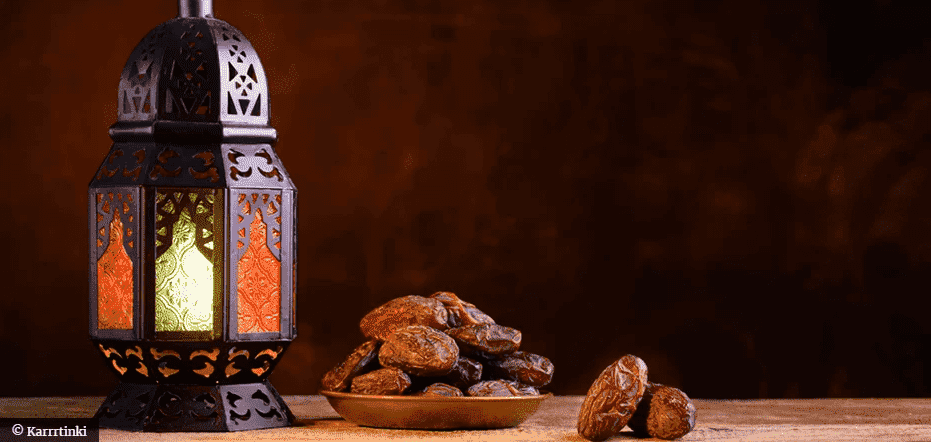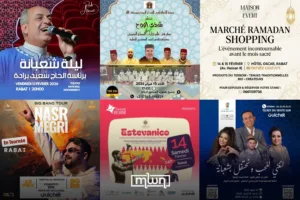Muslims around the world began the holy Month of Ramadan last week, with some countries starting on April 2 and others the following day. Because Ramadan is a month of physical sacrifice and repentance for spiritual rebirth, many devout Muslims welcome and embrace the holy month for the many blessings associated that come with, or are promised as a result of, a correct observance of the month.
But while many tend to see in the physical sacrifice of fasting — refraining from eating and drinking between sunrise to sunset — the most important requirement of the holy month, correctly observing Ramadan is associated with many other, equally critical requirements. Below is a list of 10 essential do’s and don’ts for the holy month.
1 Do Make the Intention to Fast
Intentions (niyah) are important in Islam, helping to rule out accidental and hasty actions from pure intentions to do well. Perhaps because people are notoriously groggy and thoughtless in the early hours when they are eating before the fast begins, the dua to set intentions is said (or thought) the night before fasting.

2 Do Not Skip Suhoor
It is not mandatory to eat the meal before fasting (suhoor), but people cannot skip a day of fasting if they miss suhoor. Eating suhoor is a sunnah (practice of Prophet Muhammad) and there is a hadith explaining the blessings of it:
Abu Sa’id al-Khudri reported: The Messenger of Allah, peace and blessings be upon him, said, “The pre-fasting meal is a blessed meal, so do not abandon it even if you take only a sip of water. Verily, Allah and His angels send blessings upon those who take the pre-fasting meal.”
3 Do Fast on Time
It is imperative to begin your fast at the correct time, which in Morocco is at the call of Fajr’s athan, or call to sunrise prayer. To be on the safe side, some people prefer to stop eating before the athan. This is not necessary, but you may want to do so to more easily brush your teeth and make wudu.
4 Do Not Accidently Swallow Water
While brushing teeth is makruh (disliked) yet allowed and obviously, people need to make wudu, there can be problems with swallowing unwanted water or toothpaste. Scholars suggest brushing with very little or no toothpaste and using minimal water to make wudu, spitting it out straight away.
If you do accidentally eat or drink, as soon as you remember that you intended to fast, then go ahead and continue. You are forgiven for sincerely forgetting. However, the directive to be careful when making wudu is serious, swallowing water during ablution can break your fast.
5 Do Maintain Your Medical Habits
There are legitimate reasons to abstain from fasting, but sometimes medical interventions can be confusing. The short of it is that no liquids or solids can be orally swallowed while fasting. This excludes using an inhaler. Likewise, insulin and other injections, such as COVID vaccines are permissible.
6 Do Not Fast if You are Excused from Doing so
While diabetics can still use insulin while fasting, the extreme durations between the meals can still be life-threatening, so they are excused if their doctor says so. Type 1 diabetics are especially discouraged from fasting.
Menstruating women are forbidden from fasting and do not receive any blessings if they fast during their period. There are numerous physical and mental conditions that are valid expiations and Moroccan Muslims may have the opportunity to seek the advise of a Muslim doctor to determine if they should fast or not. Pregnant and nursing women may also skip fasting when meeting certain criteria.
7 Do Avoid Vulgarity and Idleness
Some people believe that swearing invalidates fasting. At worse it does, at least it reduces the blessings of a day’s worth of fasting. Similarly, while some believe that music is haram at all times, there is a general consensus that lyrics are frequently inappropriate and should be avoided during Ramadan.
Watching television or videos during Ramadan is also problematic. While the content may be vulgar and disliked, there is also the issue of entertainment creating idleness and distracting from the many blessings that can be achieved during the holy month. Similarly, gossip is a sin at all times and will reduce the blessings of fasting.
8 Do Double Up On Blessings
Fundraising and acts of charity, as well as reading the Quran and making extra prayers during Ramadan are rewarded with an extra measure of blessings. In a Bukhari-recognized hadith, the Prophet said, “(Allah says about the fasting person), ‘He has left his food, drink and desires for My sake. The fast is for Me. So I will reward (the fasting person) for it and the reward of good deeds is multiplied ten times.”
Do good acts and enjoy oxytocin and endorphins as well as the comfort that they will help alleviate sins and weaknesses.
9 Do Reserve Intimacy for Later
As is well known, sexual intercourse, kissing with saliva exchange, and even full arousal (excretion of bodily fluids) are haram during the days of Ramadan. Having intimacy at night can reduce energy and time for other acts you may want to perform during Ramadan. Consider channeling that energy elsewhere.
10 Do Not Continue Holding Grudges During Ramadan
Seeking forgiveness is a major theme of Ramadan. While spending extra time being aware of God, many fasting people beg for His forgiveness. When fasters are upset by others they are encouraged to follow the Prophet’s advice, “If one slanders or aggresses you, say I am fasting.”
While being aware of our vulnerability and weaknesses during fasting, we can extend that empathy. Forgiving others will soften our souls. And what of asking others to forgive us and forgiving ourselves? Looking closely at our faults is not easy, but recognizing them and forgiving ourselves for mistakes and weaknesses is immensely helpful to better ourselves, moving closer to becoming the person we want to be.
Read also: 4 Tips For Healthy Fasting Ahead of Ramadan
















